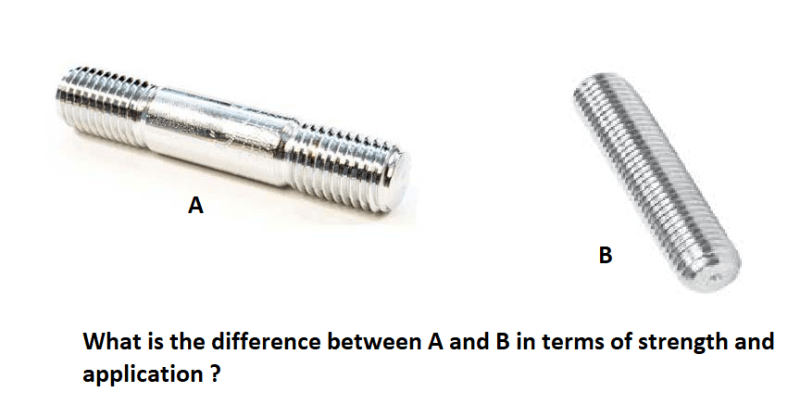curious cat
Mechanical
- Jun 4, 2021
- 5
Considering the same diameter , what are the difference in strength and applications of Shank vs Full Thread stud bolts ?


Follow along with the video below to see how to install our site as a web app on your home screen.
Note: This feature may not be available in some browsers.

